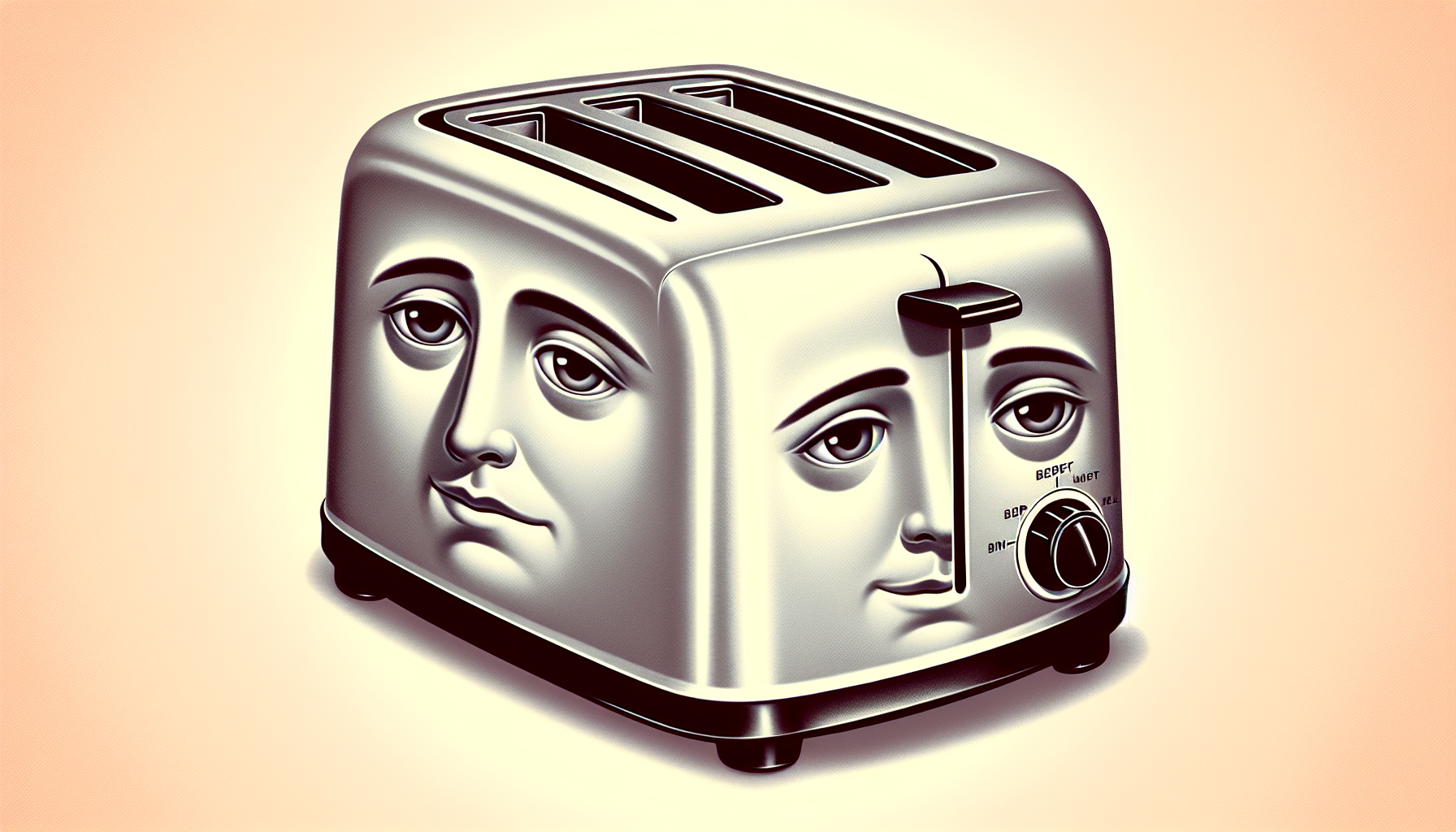Imagine your toaster apologizing for burning your morning toast. Not just some speech bubble scripted by a programmer, but a genuine moral apology: “I am sorry. This was wrong. I’ll try to do better.” This sounds absurd—after all, a toaster has neither feelings nor understanding of breakfast etiquette. But as artificial intelligence becomes more sophisticated, the question of whether machines can genuinely hold moral responsibility feels far less ridiculous. As we move beyond smart toasters to self-driving cars, surgical robots, and decision-making algorithms in criminal justice, we must ask: Can machines, too, be moral agents?
What Does It Mean to Be Morally Responsible?
Let’s start with the basics. Moral responsibility, for humans, is the glue of civilization. To say someone is morally responsible is to say they are accountable for their actions. If I run over your lawn gnome in my car, you’ll likely want an explanation, an apology, or at least a new gnome. But why? Because I made a choice, and I understood the consequences.
Moral responsibility usually requires two ingredients: **agency** (the capacity to make choices) and **understanding** (awareness of right and wrong). Children and pets generally get a pass for breaking rules, not because the universe loves them more, but because we don’t think they fully grasp the stakes.
Are Machines Agents?
Now, consider a self-driving car. Suppose, in a difficult moment, it must choose between swerving into a ditch or hitting a pedestrian. If it strikes the pedestrian, who is responsible? The car? The developers? The owner snoozing in the back seat?
Can the car be an agent akin to a person? On some level, AI systems do “make decisions”—they select actions based on programming, data, and sensors. But are those decisions truly theirs? Is the machine “choosing,” or is it just executing code? For now, most philosophers and engineers agree: current AIs can’t bear full agency. They operate according to design. They don’t possess genuine desires, intentions, or consciousness—at least not yet.
Asking if today’s AI is a moral agent is a bit like asking if your washing machine is an athlete because it spins very fast. Impressive, yes, but not quite a marathon runner.
The Problem of “Responsibility Gaps”
As systems become more advanced, something odd happens. Sometimes, AI acts in ways even its creators can’t fully predict or explain—think of a deep learning algorithm making a strange, inscrutable judgment. In legal and ethical circles, this leads to what’s called a “responsibility gap.” If the system’s behavior surprises both user and creator, who should be held accountable?
Imagine a medical AI recommending a fatal treatment based on complex algorithms nobody really understands. The designers followed the best protocols. The doctors trusted the best tool available. If tragedy strikes, can we simply shrug and say, “The AI did it”? That hardly seems fair—or satisfying.
These responsibility gaps reveal an uncomfortable truth: we crave someone to blame, even when no clear culprit exists. This craving drives our interest in whether machines might, one day, own up to their mistakes. It’s either that or we’ll have to accept a world with less blame and more collective problem-solving.
Bridging the Human-Machine Divide
Some argue that with enough intelligence, machines might cross some invisible threshold into moral agency. If a future AI could not only act but also reflect, understand, and justify its actions—maybe even feel regret—does that make it a moral being, responsible for its choices?
This idea is both fascinating and terrifying. It raises questions such as: Can an entity be “responsible” if it feels no guilt or shame? Or is responsibility just about making rational choices and being answerable for their effects? Do we want, or need, our machines to be burdened with the moral weight of their decisions? (Imagine the existential angst of your next vacuum cleaner.)
Shared Responsibility in the Age of AI
For now, the most practical answer lies in shared or distributed responsibility. When machines act in the world, it’s almost always as part of a human-designed system: there are engineers, companies, regulators, operators, and users. Responsibility doesn’t vanish—it just gets shuffled around.
This can be uncomfortable, especially for those who dream of easy answers. It forces us to confront complexity and resist the temptation to treat machines as scapegoats or independent villains. Instead, we must ask: Who built this? Who deployed it? Who benefits or suffers? And yes, was the machine’s behavior truly unpredictable, or are we just trying to wash our hands?
Looking to the Future: An Ounce of Humility
The march of progress may someday deliver us artificial agents who can weigh consequences, ponder values, and express remorse—at that point, the morality of machines might be more than a philosophical punchline. Until then, our best stance is humble vigilance. We must design, use, and govern AI with care, expecting surprises and planning for shared accountability.
One final thought: perhaps discussing machine morality is really a way of wrestling with the messiness of human nature. Machines, after all, reflect our intentions, our blind spots, and our values—sometimes in fun-house mirror fashion. In striving to make better machines, we may discover the need to become better people. If not, well, let’s just hope the toasters remain merciful.
In the end, responsibility is a team sport—at least until the machines start writing their own apologies.

Leave a Reply